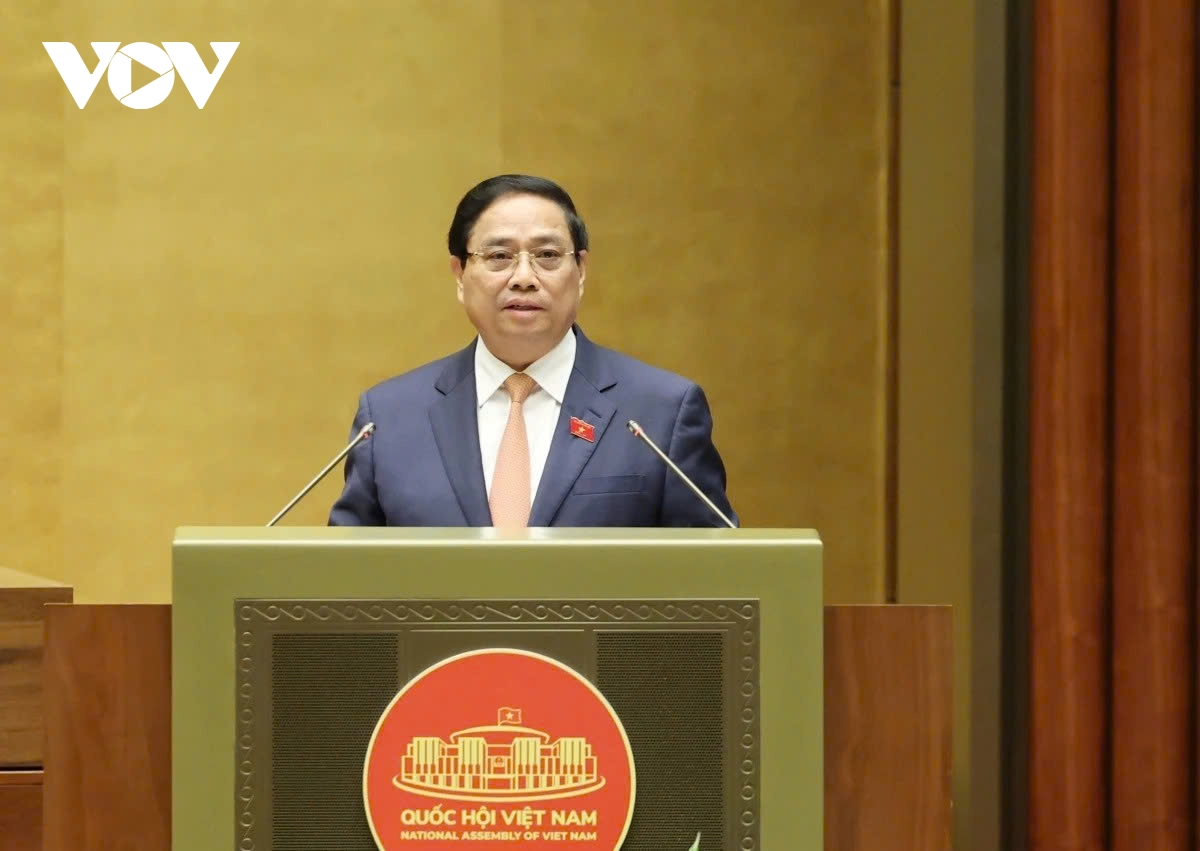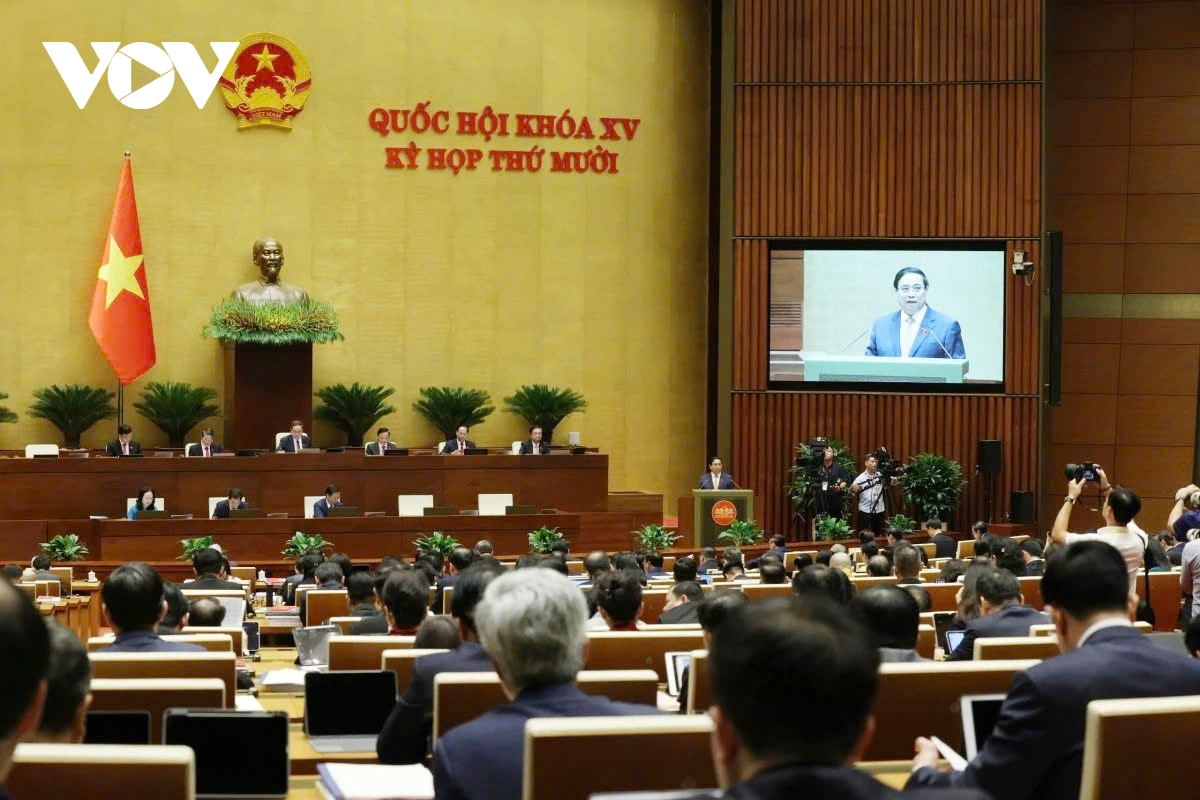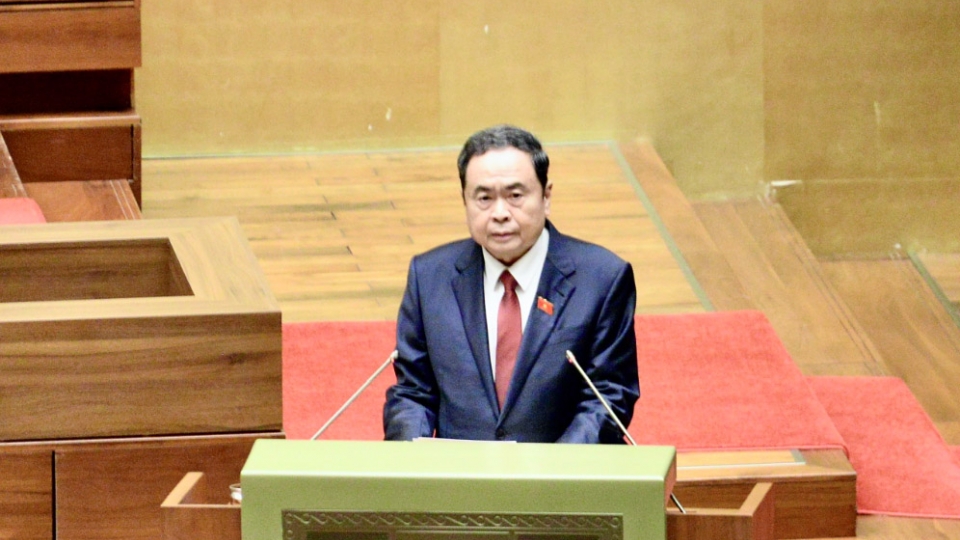Prime Minister: Vietnam sets GDP growth target of 10% or higher for 2026
VOV.VN - Vietnam aims for a GDP growth target of 10% or higher in 2026, based on the positive results achieved in the period 2021-2025 and in 2025 alone, according to Prime Minister Pham Minh Chinh in a report presented to the National Assembly on October 20.
Ambitious targets for 2026

Among other main targets, Vietnam is projected to achieve GDP per capita income of US$5,400–5,500; an average Consumer Price Index (CPI) increase of about 4.5%; an average social labour productivity growth of around 8%; and a reduction in the multidimensional poverty rate by approximately 1 - 1.5%.
The overall goal is to prioritise promoting growth, maintaining macroeconomic stability, controlling inflation, and ensuring the major balances of the economy, the Prime Minister said.
In addition, the country seeks to enhance strategic autonomy, restructure the economy, innovate development models, and accelerate industrialisation, modernisation, and urbanisation. It also aims to build a lean, efficient, and modern administrative system.
Standout accomplishments
Reviewing the results of implementing the socio-economic development plan for 2025 and the five-year period 2021–2025, the Prime Minister stated that despite a complex and unpredictable global situation, Vietnam achieved and exceeded 22 out of 26 key socio-economic targets, and nearly met 2 out of 26 targets, including surpassing all social and social security targets. For the years 2024 and 2025, all 15 socio-economic targets were met and exceeded.
Notably, the successful control of the COVID-19 pandemic has been internationally recognised and highly appreciated. The Vietnamese economy has demonstrated sufficient resilience to external shocks, maintaining one of the highest growth rates globally, with GDP in 2025 expected to expand by over 8%; the average growth rate for the 2021–2025 period is 6.3%, higher than the previous term (6.2%).
Three strategic breakthroughs (institutional finalisation, human resource training, and infrastructure upgrades) have decisively and effectively been implemented, opening new space and creating development momentum. Science and technology, innovation, and digital transformation were vigorously promoted, achieving important initial results. Many long-standing and lingering projects were decisively addressed with positive outcomes, contributing to freeing up resources for development.
Cultural and social fields have made progress in awareness, actions, and results, while people’s living standards have been improved. The central and local administrations streamlined and reorganised their apparatus effectively, associated with promoting decentralisation and delegation of authority.
In addition, national defence and security capabilities were consolidated and strengthened; national independence, sovereignty, and territorial integrity were maintained; and social order and safety were ensured.
He described the accomplishments as a source of great pride, fueling ongoing innovation, laying the groundwork for rapid and sustainable development, driving inclusive and comprehensive growth, and generating a strong momentum as the country steps into a new era.
Challenges acknowledged

However, the Prime Minister openly acknowledged ongoing challenges and shortcomings, noting there remains considerable pressure to stabilise the macroeconomy, while existing policies and mechanisms are insufficient to fully leverage human, natural, and cultural resources or to safeguard the environment.
Markets such as real estate, gold, and bonds continue to show complex and volatile behaviour. Some industries still struggle with production and business operations, and science, technology, innovation, and digital transformation have yet to become the main engines of growth.
Furthermore, there is a shortage of skilled workforce, particularly in key sectors; legal regulations are sometimes contradictory and overlapping; and administrative procedures require further significant simplification.
Tasks and solution identified
To meet the key targets for 2026, the Prime Minister emphasised that the primary tasks and solutions are to continue prioritising growth while maintaining macroeconomic stability, controlling inflation, and ensuring major economic balances. Public debt and the state budget deficit must be managed within prescribed limits.
Efforts will be intensified to accelerate industrialisation, modernisation, and economic restructuring, along with decisive implementation of the Politburo’s policies in critical and key sectors. Building and completing a comprehensive institutional framework for development remains a priority. Continued improvements in the state administrative apparatus and resolute handling of long-standing stagnant projects are essential. Focus will also be placed on investing in strategic infrastructure projects.
Developing high-quality human resources is critical, alongside promoting cultural development, ensuring social welfare, and improving people’s living standards. Proactive responses to climate change, disaster prevention and control, enhanced resource management, and environmental protection are necessary. National defence and security will be consolidated and strengthened to ensure social order and safety. Diplomatic efforts and international integration will be intensified to preserve a peaceful, stable, cooperative, and developmental environment. Communication and information dissemination efforts will be further enhanced.
As the country steps into a new era, the Prime Minister said, it is strengthened by a deep sense of unity, self-reliance, resilience, and national pride. Fueled by a strong desire to progress and a vibrant spirit of innovation, Vietnam is actively building a digital government, digital society, and digital citizens. With this momentum, the country is determined to accomplish the significant and honorable responsibilities entrusted by the Party, the State, and the people.





